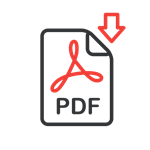
The Future of Project Management
Embracing Digital Twins, IoT, Wearables, & Generative AI

As the world moves toward a more connected, data-driven future, the field of project management is undergoing a dramatic transformation. Cutting-edge technologies like Digital Twins, the Internet of Things (IoT), Wearables, and Generative AI are paving the way for smarter, more efficient project management practices. By incorporating these innovations, project managers can revolutionize planning, execution, and monitoring processes, resulting in better outcomes and greater efficiency.
Digital Twins in Project Management: Visualizing and Predicting Success
A Digital Twin is a virtual model of a physical asset, process, or system that enables project managers to simulate, monitor, and optimize project performance in real time. This technology allows teams to:
- Visualize Project Concept, Design, and Progress: Digital Twins create a dynamic model that mirrors the project’s design and progress, providing a clear visualization for stakeholders and enabling better tracking and forecasting.
- Predict Outcomes: With simulations, project managers can anticipate risks and challenges before they happen, allowing for proactive adjustments to mitigate potential issues.
- Enhance Collaboration: By offering a shared and interactive space, Digital Twins facilitate communication among project teams and stakeholders, improving collaboration and decision-making.
Benefits of Digital Twins:
- Improved project visualization
- Risk mitigation and proactive adjustments
- Enhanced stakeholder collaboration
The Role of IoT in Project Management: Real-Time Monitoring and Safety
The Internet of Things (IoT) connects devices and sensors, allowing project teams to collect and analyze data in real time. IoT technology offers several key benefits in project management:
- Real-Time Monitoring: By tracking project assets, resources, and machinery in real time, project managers can optimize utilization, minimize downtime, and ensure everything is running smoothly.
- Data-Driven Insights: IoT devices collect vast amounts of data that can be analyzed to make more informed decisions, identify areas for improvement, and enhance project efficiency.
- Enhanced Safety: IoT sensors can monitor environmental conditions, worker safety, and potential hazards, providing alerts in real time to reduce risks and promote a safer work environment.
Wearables: A New Frontier in Project Management
Wearable technology, such as smart helmets, augmented reality (AR) glasses, and fitness trackers, is revolutionizing how teams work on-site. These devices offer multiple advantages:
- Increased Productivity: Workers can access real-time information and instructions through wearables, allowing them to perform tasks more efficiently.
- Improved Communication: Wearables enable seamless communication between team members, regardless of location, making collaboration easier and more effective.
- Health and Safety Monitoring: Wearable devices can track worker health metrics and detect hazardous conditions, promoting a safer work environment.
- Optimized Project Governance: By collecting data on task completion, workforce performance, and resource usage, wearables help optimize governance and decision-making processes.
Generative AI: Transforming Project Planning and Execution
Generative AI is revolutionizing project management by automating complex tasks, generating insights, and enhancing decision-making. Its capabilities include:
- Project Concept Design: AI can generate initial project designs and plans, streamlining the early stages of project management.
- Automated Planning: Generative AI can automatically create schedules, resource allocations, and workflows based on historical data and current project needs, saving time and reducing human error.
- Risk Assessment: AI algorithms analyze data to assess potential risks, suggesting mitigation strategies to prevent challenges before they escalate.
- Enhanced Decision-Making: By providing data-driven recommendations, Generative AI helps project managers make faster, more informed decisions, improving overall project outcomes.
Conclusion: Embracing the Future of Project Management
The integration of Digital Twins, IoT, Wearables, and Generative AI is redefining the future of project management. These technologies offer new levels of insight, efficiency, and collaboration, enabling project managers to deliver projects faster, safer, and more effectively.
By embracing these innovations, organizations can transform traditional project management practices into data-driven, value-oriented approaches, ensuring successful outcomes in an increasingly complex world.
Read More

